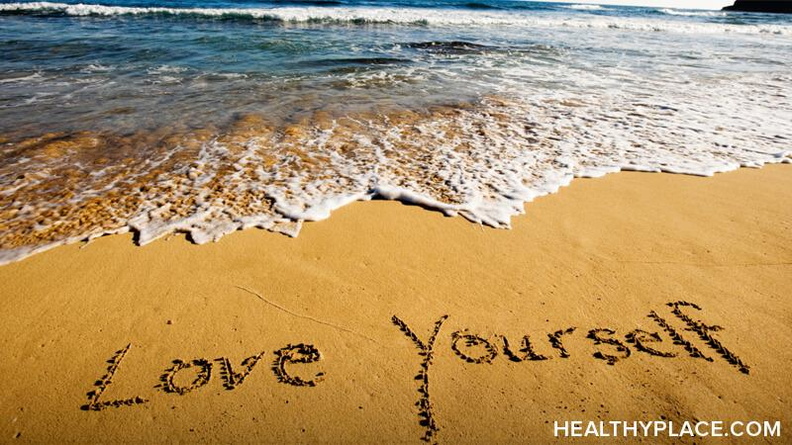Stop Making Excuses and Improve Your Self-Esteem

Do you make excuses instead of choosing to nurture your self-esteem? Making excuses for your behavior or the behavior of someone else drastically depletes your self-esteem and self-respect. It actually makes other people lose respect for you, too. Making excuses leads to blame, which makes harder to start accepting the reality of a situation and moving on with your life. So, stop making excuses and improve your self-esteem.
After a traumatic break-up I was stuck in the cycle of making excuses for my ex and myself. All this did was make me suffer more- my self-esteem was already low and the excuses left me feeling worthless. You can't change the past or the current moment if you don't accept the situation for what it is now. He hurt me and I still cared about him.
Emotions are not excuses--they are natural and you've got to feel them. Making excuses is what keeps you stuck in suffering and causes you to lose respect for yourself.
"He was trying to love me but he couldn't."
"I shouldn't have let it go on this long."
"I'm to blame."
All of these are excuses and not accepting the truth. You see, making excuses leads to blame. Blame is just another way to avoid reality. According to Brene Brown,
Blame is the discharging of discomfort and pain. It has an inverse relationship with accountability. Accountability by definition is a vulnerable process. Blaming is how we miss opportunities for empathy, because we spend our time making the connections on whose fault it was.
This means making excuses and blaming yourself or another person doesn't help you; it keeps hurting you.
Stop Making Excuses and Start to Feel Happier
 Trying to control things to be the way we want them to be doesn't work. You can't control the past, the future or a person. While we do have control over which decisions we make, we still can't control other peoples' actions. The sooner we learn to identify when we are making excuses for others' behaviors (or our own) and allow ourselves to turn our minds toward reality, the sooner we can reduce unnecessary suffering in our lives. This is vital for developing healthy self-esteem.
Trying to control things to be the way we want them to be doesn't work. You can't control the past, the future or a person. While we do have control over which decisions we make, we still can't control other peoples' actions. The sooner we learn to identify when we are making excuses for others' behaviors (or our own) and allow ourselves to turn our minds toward reality, the sooner we can reduce unnecessary suffering in our lives. This is vital for developing healthy self-esteem.
Turning the mind is a tool we use in dialectical behavior therapy (DBT) to help reduce pain and suffering. It allows you to stop the excuses and the blame and start to accept the situation or the person and move on with your life. Making excuses leads to denial and blame -- neither help you feel happier or healthier. Turning the mind is the effort to deal with painful, psychological realities without avoidance.
How to Stop Making Excuses and Move on With Your Life
- Acceptance of reality is a choice. It is like coming to a fork in the road. You have to turn your mind towards the acceptance road and away from the “rejecting reality” road. You decide if you want to continue to make excuses or try a different path, perhaps the "it is what it is and it sucks" path.
- You have to make an inner commitment to accept (or try to) and validate yourself. You don't have to like or approve of what happened, you just have to stop making excuses about it and face the facts, it happened. It helps you turns toward the path in this moment. "It hurts that we broke up and I am not in a relationship with him today."
- You have to turn your mind and commit to acceptance over and over again. Sometimes, you have to make the commitment many times in the space of a few minutes. Making excuses is a perfect time to turn your mind. "I should have tried harder." Nope, try the new path of thinking "I wish things would have been different and they are not. This hurts and I can't change the past."
- Notice when you blame the other person. "He's sick he couldn't have known he was causing me this much pain, maybe I should call him." Put down the phone. Get back on the acceptance path. "He may not know how I feel and I can't do anything to change the past. Right now, making excuses is keeping me from healing."
It's natural to make excuses and avoid painful situations, pain is uncomfortable, at times. Avoiding pain is often an automatic reaction, but you can start by noticing the excuses you're making to improve your self-esteem (How Radical Acceptance Can Improve Your Self-Esteem). This requires mental effort and commitment.
Just for today, notice your excuses and interrupt them with turning your mind towards reality. Be gentle with yourself; accept that these things happened and you can heal. Don't let the pain and suffering take over your life any longer. The more often you turn your mind and stop making excuses the higher your self-esteem will be.
Emily is a psychotherapist, she is intensively trained in DBT, she the author of Express Yourself: A Teen Girls Guide to Speaking Up and Being Who You Are. You can visit Emily’s Guidance Girl website. You can also find her on Facebook, Google+ and Twitter.
APA Reference
Roberts, E.
(2016, March 4). Stop Making Excuses and Improve Your Self-Esteem, HealthyPlace. Retrieved
on 2025, April 5 from https://www.healthyplace.com/blogs/buildingselfesteem/2016/03/stop-making-excuses-and-improve-your-self-esteem
Author: Emily Roberts MA, LPC
A downward spiral happens when a person does not quit making excuses, accept the reality, and face the facts, as your article says.
I've been struggling in those matters from a dumb business decision. The only good that has come out if it is I am drinking much less beer. And I have been in therapy for over a year.
I just need to let go and face the facts. Not doing so has only eaten me up and not living. Can't wait for the day where I feel good again.
You are so courageous John. It takes time to make a change and it sounds like you are really working hard! Turning the mind is something that I find challenging sometimes but the more mindful I am the easier it becomes. There are always bad days where I forget but we all do. Keep up the awesome work!
Take Good Care,
Emily
What a fantastic article. It’s so important to keep sharing info on how destructive poor self-image can be for yourself and those around you. I wanted to share: Miracorp is a powerful short film about self-image and how we perceive ourselves. The film portrays how devastating low self-image can be for a person, and how it can destroy lives. Help us get this message out! Here’s a short video about the film, including a few behind the scene insights. If we can get people who are struggling to connect with this film and help one person, we will have succeeded. Such a powerful message we should all hear and share.We need to love what we see #inthemirror! https://vimeo.com/155179650
